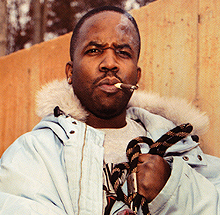Long Overdue, Librarians Rise Up In (Polite) Rage

In yet another horrible illustration of what happens when the slavering corpocrats get behind the wheel of anything whatsoever, Gary E. Strong, the UCLA University Librarian, passed around a letter yesterday outlining the need for a possible UC-wide boycott of Nature Publishing Group. The letter, signed by Laine Farley, Richard A. Schneider and Brian E.C. Schottlaender, three of the top UC library honchos, is harsh.
NPG has insisted on increasing the price of our license for Nature and its affiliated journals by 400 percent beginning in 2011, which would raise our cost for their 67 journals by well over $1 million dollars per year.
[…]
UC Libraries have already taken a stand against NPG. After recently acquiring Scientific American, NPG doubled the institutional site license fee and raised the price of an institutional print subscription seven-fold. In response, UC Libraries, along with numerous other institutions throughout the country, discontinued their license to the online version and reduced the number of print subscriptions. As a first response to the current NPG proposal, UC Libraries plan to forgo all online subscriptions to any new NPG journals. But more drastic actions may be necessary.
Since California in general and the UC system in particular have been going through a, erm, rough patch lately, the academics are extremely, albeit decorously, pissed off. But these LOLLibrarians have got an ace up their sleeve, it turns out, because NPG is highly dependent on the efforts of their own colleagues:
UC Faculty and researchers author a significant percentage of all articles published in NPG journals and are a major force in shaping the prestige of its publications. In the past six years, UC authors have contributed approximately 5300 articles to these journals, 638 of them in the flagship journal Nature. Using NPG’s own figures, an analysis by CDL suggests that UC articles published in Nature alone have contributed at least $19 million dollars in revenue to NPG over the past 6 years-or more than $3 million dollars per year for just that one journal. Moreover, UC Faculty supply countless hours serving as reviewers, editors, and advisory board members.
Which is Academese for SUCK ON THAT.
The boycott would ask UC faculty and researchers to refuse to peer review any manuscripts for NPG journals, to resign from NPG editorial and advisory boards, and, most interestingly, to go elsewhere in order to publish their own work. The exciting thing about that is that there really is an “elsewhere” in the world of academic publishing: open access journals and repositories for scholarly work, such as the Public Library of Science (PloS), “a nonprofit organization of scientists and physicians committed to making the world’s scientific and medical literature a public resource.”
PLoS journals require the researcher to foot some of the cost of publication (usually covered by the institutions by which they’re employed,) but copyright rests with the author. PloS journals are published entirely under a creative commons license, so that anyone can read, reprint and distribute their content for free. This means real access to leading-edge scholarship for everybody with an Internet connection, which, Yay!
The letter also encourages recipients to “[t]alk widely about Nature Publishing Group pricing tactics and business strategies with colleagues outside UC,” which I AM. Even though I don’t work for UC, I think everybody should know about the chilling effect of vampirically profit-driven academic publishing practices on scholarship and the free flow of information.
Maria Bustillos is the author of Dorkismo: The Macho of the Dork and
Ciudad Juarez: The Drug Economy Floods the World with Cash
by John Murray

Obama’s Drug Czar, Gil Kerlikowske, announced a few weeks ago that the federal government would begin to shift its strategy in the War on Drugs, to a focus on prevention, treatment and the public health aspects of domestic drug use and addiction. A lot of people applauded the policy shift as a step in the right direction. It reflects the thinking that the best way to fight drugs isn’t a frontal assault on supply, but instead a campaign to reduce demand. This sort of tactic is important, because it’s less about stopping the drug trade itself and more about trying to root out its causes.
But if the reasons for demand are the willingness of Americans to pay money for drugs, the causes on the supply side are the willingness of cartels to sell drugs for money. And when the profits they generate are so substantial, the addiction to drug money is just as potent as the addiction to drugs.
Right now, just over our border, there are several illicit, ultra-violent, multi-billion dollar business entities operating on the scale of transcontinental corporations. They employ hundreds of thousands of people, and benefit hundreds of thousands more when the capital they generate is disseminated into the larger economy. They wield enormous power and influence in a country where the monetary output of their illegal activity actually stacks up with the biggest legal industries and exports.
When the recent war between these organizations first began, it was ostensibly over territorial disputes within the industry. But now the rhetoric of that fight has shifted, in places like Juarez and Tamaulipas especially, to actually being about literal control of those areas: about owning them.
There’s no better example of how powerful the cartels are than the fact that the Mexican government felt the need to declare ‘war’ on them, as they might against a domestic rebellion or armed political insurrection. And yet for the cartels, there is absolutely nothing ideological or political at stake.
This is what makes the violence in Mexico categorically different from any of the other conflicts we see in the world today. The cartels are ultra-capitalists, willing to do whatever it takes to dominate an industry where there are no rules, no oversight and no limits. Drugs are illegal, but people still want them, and that makes them an extremely profitable commodity. That’s the way it was when Mexican entrepreneurs first began smuggling and it’s the way it is today. Legalization aside then, the problem of drugs, while it should be considered a public health issue, is an economic one.
Our streets are flooded with Mexican drugs; Mexico is flooded with American drug money. And that money doesn’t just stay in the hands of criminals, sitting in a vault in some fortified mansion on a hillside.
Legitimizing money is a big logistical problem for organized crime, but that’s less so in Mexico, where 75% of the economy is based on cash transactions. Without any real system in place to track large cash purchases, drug money is easily laundered into real estate and business investments. There are countless businesses throughout Mexico, including retails shops, car dealerships, dairies, farms, restaurants and distribution companies that are run almost purely with drug money.
But that money still gets paid out to employees, contributes to legitimate enterprises and finds its way into the larger economy. That’s the danger that drug money presents. If the economy becomes dependent on it, if people’s livelihoods are at stake, it can be extremely difficult to extricate.
And that’s not just a Mexican problem. Recently, a former governor of the state of Quintana Roo (home to Cancun), Mario Villanueva, was extradited to the US on charges of accepting bribes and aiding the operations of the Juarez cartel during his term as governor during the 1990s. It was a big arrest, and was seen as very good for the image of the drug war, because it showed that even if it takes a decade, this kind of corruption is eventually prosecuted and dealt with. It looked especially good set against the current slow demise of the Juarez cartel he once, apparently, worked for.
But even more distressing than his functional assistance to the cartel may have been what he did with his earnings. Beginning in 1995 up until the turn of the century, Villanueva laundered over $19 million through various bank and brokerage accounts at Lehman Brothers. Some of these accounts were in ‘safe’ locations like Switzerland and Panama, but a great deal was also held in US accounts. Worse still, a Lehman broker named Consuela Marquez admitted to knowingly laundering the money for Villanueva and even to later liquidating $7 million of it for him as he prepared to go on the run when his term ended amid suspicion of his heavy involvement in drugs.
The case points to an imbalance between our views of drug crime and our view of the financial crime necessary to sustain it. Villanueva faces up to life in prison for his crimes of accepting bribes and turning a blind eye to drug traffickers in his country. Marquez, for willfully taking on millions in drug money and hiding it in licit financial institutions for someone she knew was dirty, received probation and one year of house arrest.
This is not an isolated incident. Raul Salinas, brother of former Mexican president Carlos Salinas, was discovered to have $75 million stashed in Swiss bank accounts when he was arrested on charges stemming from a political assassination. Wachovia just settled for $160 million in a suit claiming that their anti-money laundering checks were inadequate, and that their accounts were used to launder over $100 million in drug money. The UN representative in charge of the office of Drugs and Crime even asserted that the world financial system was saved, after its latest meltdown, by the presence of liquid drug money in banks.
And what about the War on Drugs itself? If the cartels have contributed to the world economy through the trickle-down effects of the immense profits of the drug trade, then the US has contributed to it through the money we’ve spent trying to stop the drug trade. We allocate billions every year for tracking and prosecuting drug criminals. We created the giant bureaucracy of the DEA, we send billions in aid to Colombia and Mexico to attempt in vain to stop the flow of drugs north. We’ve created an entire industry around trying to stop an industry.
It’s going to be just as important for us to wean our economy off the support of drug money as it is to wean addicts off of drugs themselves if we want to have a chance of actually reducing the impact of the cartels and the violence they’re able to create. Going after their ability to hide, move and get access to their money is ultimately going to be more effective than trying to stop them from earning it. If we can devalue drug money by making it harder for it to be used, even a little bit, it will be a big detriment to their ability to operate. If we’re serious about stopping them, we should be forcing them to bury their money in backyards instead of at Lehman Brothers and Wachovia.
Nowadays, money is ever more important for the cartels. As technological advances in surveillance and weaponry have helped the authorities become more vigilant in the fight against drug gangsters over the years, the cartels have had to find ways to adapt, and that takes enormous sums of money. The overhead it takes to avoid detection in moving drugs from South America through Mexico into the US is astronomical. It involves bribes, logistics, equipment. Then there’s the cost of defending yourself from competitors. Without an enormous flow of cash, it wouldn’t be possible for the cartels to operate. And if we make it harder for drug money to be effective in buying the things the cartels need to survive by doing a better job of tracking and going after it, we’ll make it harder for them to use it to bribe and buy the right to exist.
John Murray is a lover of obscurity. He lives and writes in Arizona.
Real Nerd Talk: 'Doctor Who' Goes Psycho Off the Rails

So listen, I don’t know if you’re watching Doctor Who on the delayed American schedule or on the “real” British schedule, a choice that involves mostly how comfortable you are with sun, sea and piracy, so I will warn you there are “future”-airing episodes that have actually already aired in the “past” (June 5, overseas) that are discussed beyond this point.
This season, I warmed up surprisingly well to the new Doctor! I was all, Matt Smith, whatever, but now mostly I love him. Not a David Tennant kind of love. But I’m into it. And I am feeling rather compelled by the series-long conceit of the unknown future “crack in time” issue. It’s disturbing. I’ve even decided I don’t hate Amy Pond, and maybe kind of like her, as this season’s companion. At least she has spunk.
So when things went wildly off the rails in the Richard Curtis-written episode 210, “Vincent and the Doctor,” I was PISSED. For one thing, there are only three episodes left of the season! We have to deal with Amy having totally forgotten the stupid and not that cute love of her life, due to the evil crack in time, oh and also the crack in time itself, in THREE 40-SOMETHING MINUTE EPISODES.
As delighted as I am to see Bill Nighy in anything, and I really was, this episode tossed the season’s conceits and troubles to the wind, largely. (Oh, the Doctor was BRIEFLY sad about Amy not knowing why she was sad, big deal.)
AND THEN. And THEN. The unthinkable happens! (SORRY SUPER SPOILER.) The Doctor takes Vincent van Gogh into the future to show him how very famous he becomes! (Just writing that sentence made me fell 1000 times gayer than I already am. I KNOW.) And then the Doctor takes him back to his “real” time and dumps him there.
There is MUCH WEEPING. Much loud music! WTF.
Okay, I ain’t buyin’ it. The Doctor does not do this! He does not mess with timelines, potentially changing the course of history (art history, in this case, but STILL). That ain’t right! How many times have we had to hear the Doctor scream about the primacy of timelines? And then this?
I CALL BULLSHIT.
Things were going so well! But I am so geek-mad right now. I could barely sleep over this. Thank you for listening.
South Carolina Stays True To Dirty, Dirty Form

While various states may argue about over supremacy when it comes to political corruption, there is no disputing which of our nation’s commonwealths practices the dirtiest actual politics: Step forward, South Carolina! Today’s Washington Post even went to the trouble of nailing down the state’s five nastiest races, one of which culminated in Tuesday’s primary, where state Rep. Nikki Haley, a Republican of Indian descent, was forced into a runoff for the gubernatorial nomination. Her race looked like this.
Days after polling showed her surging into a solid lead over Rep. Gresham Barrett, state Attorney General Henry McMaster and Lt. Gov. Andre Bauer, Will Folks, a Republican blogger and former aide to Sanford came forward to allege an extramarital affair. Days later it was Larry Marchant, a one-time Bauer campaign aide, claiming he, too, had engaged in a sexual relationship with Haley. As if that wasn’t enough, state Sen. Jake Knotts, a Republican, referred to Haley as a “raghead” in an interview with an Internet talk show.
Crazy stuff, although nothing particularly astounding for South Carolina. More interesting is the story of Alvin Greene, who won the Democratic nomination to face popular Senator Jim DeMint. What’s Greene’s story?
Alvin Greene is an unemployed veteran who has never held political office. After filing for the Democratic primary in the Senate race from South Carolina, his campaign seemed to stop. There is no Alvin Greene web site, no Alvin Greene bumper stickers, no Alvin Greene yard signs. There’s not even an Alvin Greene FEC filing.
Nonetheless, Greene won last night’s Democratic primary, beating Vic Rawl, a judge who served in the South Carolina legislature for four terms.
South Carolina’s Democratic Party chair theorized that Greene won because his name was first on the ballot. Greene may have been unknown to the voters, but he is not unknown to the law:
Court records say he was arrested in November and charged with showing obscene Internet photos to a University of South Carolina student, then talking about going to her room at a university dorm.
Charged with disseminating, procuring or promoting obscenity, Greene could face up to five years in prison. He has yet to enter a plea or be indicted.
South Carolina Democrats are both apoplectic and suspicious. U.S. Rep. Jim Clyburn, the third most powerful Democrat in the House of Representatives, sees trickery.
“I don’t know if he was a Republican plant,” Clyburn said, adding that Greene “was someone’s plant. What is an unemployed guy doing paying $10,000 to run for the United States Senate? That just doesn’t add up.”
Greene had no campaign infrastructure to speak of and his candidacy generated very little press attention. Still, the Democrat was able to win 59 percent of the vote Tuesday, earning his party’s nod to take on Sen. Jim DeMint (R-S.C.).
Clyburn indicated that the circumstances were too bizarre for the election results to be legitimate and encouraged the U.S. Attorney’s Office to investigate the charges currently pending against Greene.
What does the man himself have to say? Awl contributor Cord Jefferson interviewed Greene for The Root. Check it out. This is only going to get weirder, so you might as well have as much background information as possible.
Chocolate Chip: Tangled Up In Jews
by Charlie

Several lines from Michael Chabon’s intensely critical op-ed piece “Chosen, but Not Special” in last week’s Sunday Times stopped me dead in my tracks: “Jews are stupid in roughly the same proportion as all the world’s people… A stupid Jew is like a hole in the pocket of your pants, there every time you put them on, always forgotten until the instant your quarters run clattering across the floor.” Say what? Jews? STOOPID? I guess it kind of sucks to be Jewish right now, what with THIS and THIS-and now Chabon, too? But I remember when it was so cool to have a smart, rich Jewish friend (especially the rare Persian breed with a posh pad in Beverley Hills). I remember the day when having Jewish friends meant you had some kind of smart, get-out-of-dumbass-land-free card. Like, you could say, “oh, IIIII don’t know about THAT, but my Jewish friend thinks THIS” and everyone would ooh and ahh because, Jewish! Now that’s brains!
But no more! Today, it’s a different jar of gefilte fish. You may have Jewish friends, but you can’t hide behind their smarts anymore. Now, you need your own intelligence, because even the Jews are outing themselves as regular Joes (Moishes?), subject to the same laws of nature as you and me. It’s not okay to say, “I bone Ivy-league educated Jews” or that “I went to school with and was educated by Jews” or even, “I AM a Jew!” and expect people to assume you’ve got what it takes to explain the Theory of Relativity. NOPE. Today, to be Jewish, or an honorary Jew, you’re going to be held to the same standards as EVERYONE else. In other words, it’s time to drop the “chosen people” moniker and adopt the “hey, we’re human, we do dumb shit (shoulder shrug)” M.O. that the rest of us have taken to using with alarming (but consistent!) frequency.
Although Chabon denies that Jews have “an inborn, half-legendary agility of intellect,” he acknowledges that his background includes “highly intelligent, quick-witted, shrewd, well-educated” Jews. Kvetch all you want, Mr. Chabon, about being “trained, implicitly and explicitly, to ignore” the stupids of your race but, let’s face it, no one wants to learn about stupid people. Jews have done a masterful job in this regard, accentuating their best assets and not calling attention to the schmuckelsteins. A shrewd and tactful bunch, which, MAZEL!
Before anyone starts crucifying me, I would like to point out that I love matzah and brisket. And a good bagel with whitefish salad is to die! Further, to put it frankly, I love me some Jews. I am in awe of the sheer diligence and determination of the race and the history and the lore, the mysticism and the $$$$$. I mean, the work ethic! No, but, yes: these are people who do NOT settle for a hand out. They are the people who said, “Fuck you, Jesus. I don’t care who you say you are! Do what you will in the quote unquote AFTERLIFE. Ha. Ha. Ha. You’re a dead man!” Now that’s balls. That’s chutzpah! The Jews have all of that and then some.
This is why, in spite of the fact that it is becoming more and more evident that Jews are no Ãœbermenschen and that they don’t posses a special seichel wand, you still don’t want to fuck with the Jews (shalom, Helen!). Hence, I would like to take this opportunity to reiterate the very special bond between Jews and blacks. Sarah Silverman did a phenomenal job highlighting the various similarities between the Kikes and the Spades in a supreme effort to get the old Jews in Florida to vote for darkie and I would like for us to carry on this tradition.
Some naysayers have argued that Negroes and hymies don’t get along. Barry, Axelrod and the son of the devil’s spawn that they chill with don’t count because Netanyahu says Emanuel and Axelrod are already on the self-hating Jew tip anyway. And sure, blacks hate Jews for stealing jazz. Jews hate blacks because we’re better looking. But I say, don’t hate the player! After all, you can’t blame Jews for their shitty klezmer music and you can’t blame blacks for their obsession with sexy-time.
We can, however, establish our coalition of soul people and bagel people and use it to fight this country’s crazy cracker domination. Jews have already figured out how to make white people do what they want them to do and this is a skill black people need to learn from Jews immediately. Again, it’s not enough to say “I’m down with the J-Team” and expect to their cunning to mysteriously rub off on you. It wasn’t enough for me to sit next to Anatoli in class and expect his higher GPA. That’s missing the point. It’s not about being a secondhand Jew (you know who you are), we need to learn to BE more Jew-like!
This is no easy task, of course. Especially because the key to this equation seems to be historical tragedy (in our case the “peculiar” institution of slavery) and if there’s one thing white people in America don’t like talking about, it’s slavery and racism in America. These things will suck the air out of the room full of white people faster than you can say “reparations.” You know what DOESN’T seem to suck the air out of a room full of white people and,in fact, sometimes even attracts discussion and dialogue (not always the good kind though!) in America? The Holocaust. How do Jews do that? The Holocaust can make shit happen-and it can get people to shut the fuck up. It’s pretty magical if you think about it. I mean Native Americans said “Holocaust” and all they got were a few casinos. Blacks have assailed the terrible conditions of our ghettos/projects, but Jews lived in ghettos too and you know what? When life gave the Jews lemons, they made the diamond district. Now that’s progress! (I hope you blacks are taking notes.)
Jews and blacks once worked in concert during the civil rights movement; marching together, dying together, singing and then getting stoned by the local policy force together. But somewhere along the way it seems the Jews and the blacks just stopped liking each other and the narrative diverged. To add yet another twist to this tangled Gordian knot, some crazy crackers have taken to comparing the president to Hitler, instigating further conflict, driving the wedge even deeper. This is unfortunate because Jews and blacks have both experienced terrible atrocities at the hands of white people and yet they’re still getting away with all this.
The real bone of contention between Jews and blacks is this idea (and a possibly wrong one!) that Jews get special treatment for their tragedy, while blacks don’t seem to get that much respect for theirs. (What’s more, while the blacks in America haven’t had much success exploiting their crippling past and figuring out how to use it to gain uncanny political sway, some Jews do sometimes give us hope, reminding us that suffering is much worse when you can’t turn it into profit or power.)
Here. Try this nifty exercise with your various white friends:
Step 1. Close your eyes for ten seconds.
Step 2. Tell them to picture devastating images from Bergen-Belsen or Auschwitz.
Step 3. Tell them to picture devastating images from the Zong Massacre and Rosewood.
Step 4. Wait from them to ask you: what the heck is The Zong Massacre?
Okay, so this is misdirected thinking. “I am not Jewish. I am not black,” said one freakishly Caucasian buddy of mine, “but it’s kind of silly to say that one struggle is more important than another. All struggles are important to those who toil in them.” He is absolutely right. So stop hating on Jews, black folks!
Jews have been persecuted over the centuries and too often they are criticized for their resilience and fortitude as opposed to being applauded-as opposed to our saying, “Hey, if the Jews can do it, so can we, because Michael Chabon says they can be stoopid too!” Certainly there are stupid Jews who will continue to argue that “chosen” is tantamount to “special,” but the harsh reality is, we are all human and the more you push the “we’re special” line, the more credibility you’ll lose when the next flotilla sets sail.
The takeaway: As stupid as some Jews may be, their incredible history offers an amazing education that everyone should study and learn from. Another fat fact: The history of every race offers an education. Jews ain’t all that special. While blacks and Jews may have a fraught relationship, we need to recognize that what unites us is more important than what divides us. While it may not be a great month to be a Jew, it’s always a good time to learn something from them and their mistakes.
Charlie is the pen name for a young professional black woman living in Hymietown.
How To Speak English
This is a couple of weeks old, but as linguistic prescription seems to be the theme of the day, we might as well go with it: British comedian (and recent mugging victim) David Mitchell provides some instruction of proper usage. (If you are unfamiliar with Mitchell, he is one of the most interesting comedians working today. Co-star of the popular British sitcom “Peep Show” with his comedy partner Robert Webb, he is also responsible for “That Mitchell and Webb Look,” which can be seen on BBC America. I’m including my favorite skit from the show below as a bonus.) If you enjoy this, here’s the channel for “David Mitchell’s Soap Box.” [Via]
Who Big Boi Really Samples in "General Patton"
by Seth Colter Walls

For real, keeping up with Big Boi has been a challenge of late. When he’s not giving us previews from his new, official product coming out next month, he’s going straight samizdat with the Andre 3000 collabos that Jive records won’t allow anyone to pay actual money for. Lost in the general haze of sturm und purp, though, was this weird little question that got my music-geek dander up. When “General Patton” hit, 72 internet news cycles ago, initial writeups gave credit for that fat chorus-and-orchestra sample to… an opera “by Georg Solti”? The conductor? Who never actually wrote any music? No. That didn’t sound cricket.
I spent some time crate-digging through my (limited) Georg Solti-conducted music collection, and came up with zilch. That’s because I don’t own much by Giuseppe Verdi, from whose pen the music for “General Patton” originates. Specifically, from “Vieni, o guerriero vindice,” in Act II of Aida. (Here’s a lo-bit, longer clip of the music in question.) This number comes right after Aida’s big-deal “triumphal march,” which makes a certain kind of sense if you think about it. Big Boi’s songs often kick off as though they’re coming on the heels of a great victory. And a Def Jam source confirms that the sample in “General Patton” does come from Solti’s 1962 recording of the Verdi opera. So, consider that one terribly small-bore musical mystery solved.
Oh, you want to know why Big Boi and co-producer J Beatz chose the 1962 Georg Solti recording of Aida in particular? (Since there are nearly a hundred versions to choose from?) Can’t say for sure, but maybe it’s because Solti was also a Wagnerian, with a rep for bringing that kind of thump to his Verdi conducting. I mean: heavy is heavy, and it speaks across genre.
Local Newspaper Will Now Mail Printed TV Listings To Your House

For just $2.99 a month, the Los Angeles Times will now deliver to your home a weekly 44-page tabloid-format TV news section, the TV Times. What’s in it? TV listings, mostly! “24-hour daily grid listings spanning morning, afternoon, primetime and late-night programming, four pages of alphabetized TV/cable/satellite movie listings, a full-page cover story, a TV-related crossword puzzle, episode highlights and synopses, and a dedicated sports programming page.” This is it! Someone has finally figured out the business model of the future! Okay, I’m being sarcastic, and that’s rude. I hope the ad space makes them money! With the LA Times entertainment site’s web traffic down from over 21 million views a month last September to just over 11 million this May, they’re gonna need it to create all the revenue they can.
Non-English Speaking Refs To Remain Ignorant Of Meaning Of "Nutmuncher"
Sad news: the International Federation of Association Football (known as FIFA, because of some French thing), the governing body of international soccer (a game played with a ball and two nets in which the use of hands is restricted) has denied reports that it issued a list of 20 English profanities to World Cup referees in advance of the big tournament that is start sometime soon, apparently. I say the news is sad because I would love to see an official list of English profanities: “Motherfucker” and “cocksucker” now seem rather wan to me, due to overuse. I need a few good new curse words to really spice things up around here.
Discovery Of World's Oldest Shoe Sure To Inspire 'Sex and the City' Jokes
Discovery Of World’s Oldest Shoe Sure To Inspire ‘Sex and the City’ Jokes

“The Armenian shoe discovery, published Wednesday in PLoS One, an online journal, was made beneath one of several cave chambers, when an Armenian doctoral student, Diana Zardaryan, noticed a small pit of weeds. Reaching down, she touched two sheep horns, then an upside-down broken bowl. Under that was what felt like “an ear of a cow,” she said. “But when I took it out, I thought, ‘Oh my God, it’s a shoe.’ To find a shoe has always been my dream.”
–If I had reached my hand into a weedy pit in a cave in Armenia and touched something that felt like a cow’s ear, I’m not sure I would pull it out to investigate. But that’s why archeologists are probably more interesting to talk to at parties than I am. The story in today’s Times about the 2008 discovery of a 5,500-year-old leather shoe, the world’s oldest, is great fun to read.
